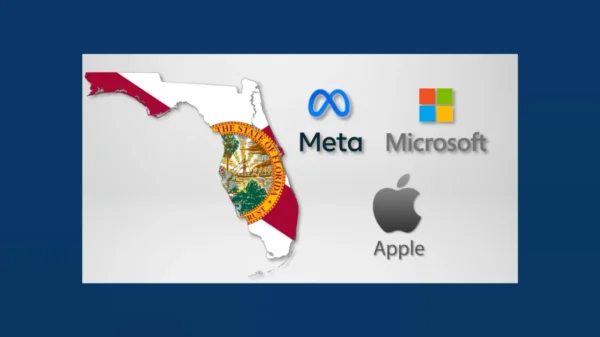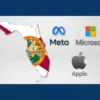Facebook has been looking to expand its business through partnerships with financial institutions across the nation to gain access to some of your financial data, including card transactions and checking account balances for customer service functions in the Messenger app. While this may add convenience to banking and other financial transactions, it could make your financial information vulnerable. A current scam includes criminals cloning accounts of your family and friends to steal photos and personal information, this move could put your financial information at risk.
Florida state CFO Jimmy Patronis weighed in on the scam this week.
“As Facebook increasingly becomes a one-stop-shop for many Floridians to access news, events, and even shop online, we have to do all we can to protect the information you share on this platform,” Patronis said. “With new cyber scams popping up seemingly every day, opening another entry point for criminals to access your data is a risky move.
“There are as many as 13 million active Facebook users in Florida and anyone can fall victim to this latest scam,” Patronis added. “These are not your friends; they are criminals actively looking to steal your personal information and your identity. Facebook is working to incorporate features that detect a sender’s location and can identity fraudulent accounts. Our job is to make sure Floridians are aware of these threats so that we can help protect your identity and finances.”
Facebook Messenger Scam Tips for Consumers
- Pay Attention to the Sender’s Display Name. A cloned account will look very similar to the user they are trying to impersonate, but will typically be different. A capitalization or spacing difference may be a good indicator that the account is fake.
- Do Not Accept the Message Request. If the account looks fake, do not accept the request to message.
- Review Information from Facebook. Facebook is testing ways to detect the sender’s location and identify if an account appears to be fake. Read all detailed information before you engage in any sort of exchange. It could save your identity and financial information.
- Report and Block Fake Accounts Immediately. Let Facebook know that the account that is messaging you is impersonating someone you know and be sure to block that account.
- If You’re Compromised, Notify Your Financial Institutions. If you do fall victim to this scam, contact your financial institutions (bank, credit union, credit card companies, etc.) to alert them and protect your identity. Freeze your credit, which is now free in Florida after CFO Patronis successfully removed this fee during the 2018 Legislative Session.




















